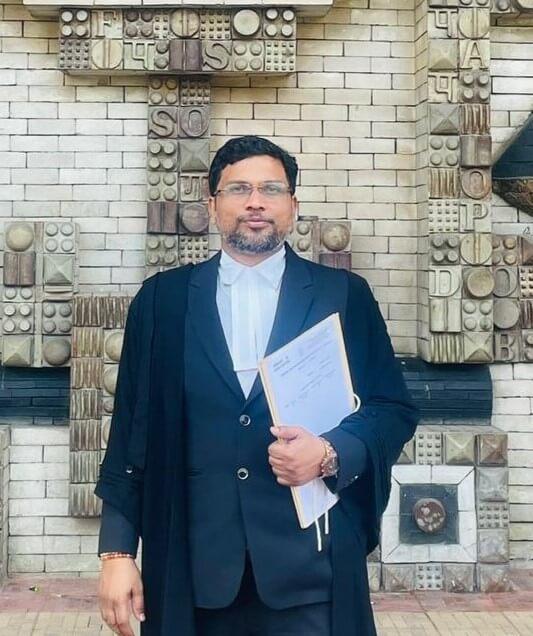What Does a Lawyer Do to Win a Personal Injury Case? Personal injury cases are more complex than legal battles. Whether it’s a car accident workshop injury, or some kind of personal injury that can change the way you live. So the implementation of a lawyer in personal injury cases is important to give justice to the victim. In this blog, we will cover the aspects of how a lawyer helps to win a personal injury case. Making a Consultant with the Client The first and most important thing is to consult with the individual. This is a crucial step that everyone follows. The lawyer listens to the client carefully to the details of the case. Some questions helped to understand the lawyer if there were some negotiations available to give the damage to the client. The questions and the interaction with the client help to present the case to the court. Sometimes the personal injury cases meet certain conditions like demanding money, presenting witnesses, and giving the rights to the victim. A good lawyer will listen and clear all the doubts about where the legal provisions will apply in the case. Investigating for Evidence If any personal damage case happened then the evidence is necessary for the case. The lawyer finds every single piece of evidence to make the case strong in court from the damage that happened to the charges applied to it. If the injury involved a car accident, a police report is enough to present the victim and the situation. Some police action also involves photos and videos to make the case. The medical report of the victim and the accused helps to link the accident and the injuries. A lawyer also brings the surrounding people present at the location as a witness of the case. They can also provide medical professionals and accident reconstruction specialists as a strong witness in the court. Negotiating in the Court One of the biggest challenges in personal injury cases is to provide the best outcome for the victim. Sometimes the victim wants to settle the case outside the court and this helps to reduce the time and effort. Damages in personal injury cases are covered on the basis of medical bills, lost wages, rehabilitation costs, and any other property damages. Some cases also involve negotiation with the insurance companies. Insurance employees are trained to cut down the payouts to the victim. The lawyer ensures that the client is getting the best results out of it. The insurance companies may often show the wrong terms and conditions that are not relevant. The lawyer’s team makes sure that the action should be taken on the right papers without harming the potential of the victim.
Best Divorce Lawyer in Delhi
Divorce can be one of the most challenging and emotional experiences in a person’s life. It’s a legal process that dissolves a marriage and addresses various issues, such as asset division, child custody, alimony, and more. Understanding the divorce process can help individuals navigate this difficult time more effectively. This article provides a comprehensive overview of divorce cases, the types of divorces, the legal process, and key factors to consider. Types of Divorce Divorce cases can vary greatly depending on the circumstances of the couple. Here are the most common types: The Divorce Process The divorce process can be complex and varies by jurisdiction. However, the following steps provide a general overview: Key Issues in Divorce Cases Divorce cases often involve several critical issues that must be resolved: Considerations Before Filing for Divorce Alternatives to Divorce Before opting for divorce, some couples consider alternatives: Conclusion Divorce is a complex and often emotionally charged process that involves numerous legal, financial, and personal considerations. Understanding the types of divorces, the legal process, and the key issues involved can help individuals navigate their divorce cases more effectively. Seeking legal advice, prioritizing the well-being of children, and considering alternatives may lead to a smoother transition during this challenging time.
Telangana Court Judgment
Telangana Court Judgment Rash and Negligent driving – Accused is presumed innocent until proven CRPC – S.374, 397 & 401 – IPC – S.304A & 337 – M.V. Act – S.187 – Criminal revision against conviction – burden of proof – high speed – held, A thorough review of the evidence presented reveals that none of the essential elements for the offenses under S.304A & 337 of the IPC, nor S.187 of the M.V. Act, are established against the petitioner/accused. Although a complaint was lodged and cognizance was taken with a charge sheet filed, there is no substantive evidence to proceed against the petitioner. The court further noted that merely driving at a high speed does not automatically imply negligence or rashness. None of the prosecution’s witnesses could clearly define what they meant by “high speed” or provide any specific details. In a criminal trial, the burden of proof always lies with the prosecution, and the accused is presumed innocent until proven otherwise. As a result, the petitioner is entitled to an acquittal for the charges brought against him. The criminal revision petition is allowed, and the conviction and sentence are set aside. Accordingly, the petitioner stands acquitted of all charges. #rashdriving #accident #presumption #innocentuntilproven #substantiveevidence #presume #highcourt #telanganahighcourt
Family Matters Cases Lawyer in Delhi
Family matters cases involve disputes related to family relationships, marriage, and child custody. Here’s a comprehensive guide: Types of Family Matters Cases: Family Matters Procedure: Family Matters Laws: Family Court Procedure: Family Matters Documents: Family Matters Fees: Tips for Family Matters Cases: Common Family Matters Mistakes: Family Matters Resources: Family Matters Judgment: By understanding family matters cases and procedures, individuals can navigate complex legal issues and ensure justice. Sources: Additional Resources:
Advocate in Delhi
Supreme Court Judgment. Accused were not traceable. Such conduct by itself is not reflective of a guilty mind. The absence of the accused when the police discovered the body and initiated proceedings after filing the FIR might stem from the instinct for self-preservation rather than guilt, even if the accused were innocent. This instinct could prompt the accused to avoid arrest until advised better and eventually surrender. Such behaviour doesn’t necessarily indicate a guilty conscience. If the accused were truly innocent, this act of self-preservation could simply be a reflex action rather than a sign of culpability. The natural inclination to avoid immediate arrest might be influenced by prudence until the accused gets sound advice to surrender. Therefore, this conduct alone may not serve as evidence of a guilty mindset.



